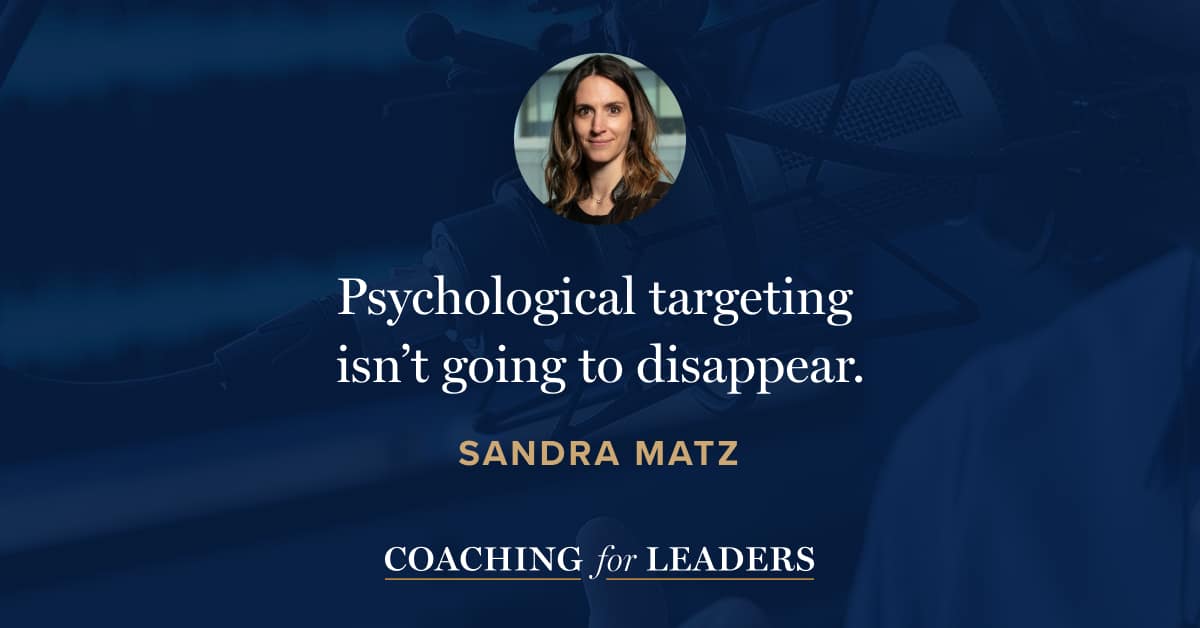Sandra Matz: Mindmasters
Sandra Matz is a Columbia Business School professor, computational social scientist, and pioneering expert in psychological targeting. Her research uncovers the hidden relationships between our digital lives and our psychology with the goal of helping businesses and individuals make better decisions. She is the author of Mindmasters: The Data-Driven Science of Predicting and Changing Human Behavior*.
Algorithms are becoming more influential with each passing day. That’s why leaders must understand their power and then decide how their organizations engage. In this conversation, Sandra and I discuss where psychological targeting is at, where it’s going, and the opportunity you have to make the world a bit better.
Key Points
- Everyone knows everything in a small town (for better or worse). In the same way, psychological targeting can be used for both evil and good.
- Psychological targeting already is successful at identifying wealth, personality, income level, and sexual orientation – and keeps improving.
- None of this is going away. Understanding how the game of targeting is played can help you make it work to your advantage.
- Leaders and organizations who use targeting responsibly can do tremendous good, including helping people save money and flag early interventions for health crises.
- Be transparent with what data you’re collecting and how you’re using it. Consider newer practices like federated learning that protect privacy and provide permission-based access.
- Design systems and practices that anticipate the reality of future leaders with different values.
Resources Mentioned
Interview Notes
Download my interview notes in PDF format (free membership required).
Related Episodes
- Serve Others Through Marketing, with Seth Godin (episode 381)
- The Way to Earn Attention, with Raja Rajamannar (episode 521)
- The Reason People Make Buying Decisions, with Marcus Collins (episode 664)
Discover More
Activate your free membership for full access to the entire library of interviews since 2011, searchable by topic. To accelerate your learning, uncover more inside Coaching for Leaders Plus.





